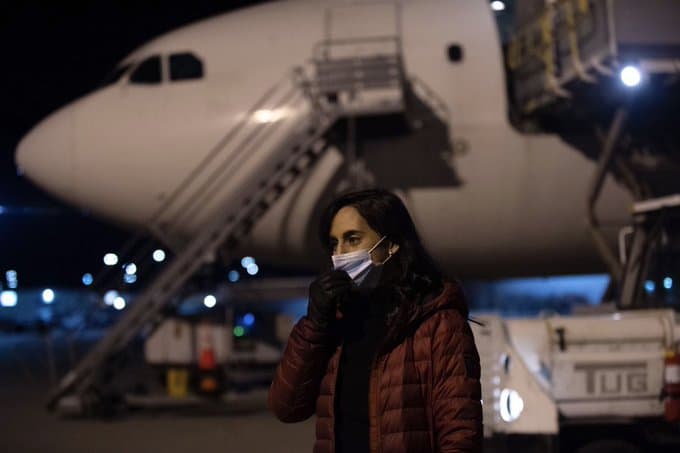Oakville MP says Federal Government not standing in way of provinces purchasing vaccines
Published February 12, 2021 at 12:19 pm

Oakville MP Anita Anand, recently pointed out that the Canadian federal government isn’t getting in the way of any of the provinces or territories looking to make a deal to purchase sought after COVID-19 vaccines.
Manitoba Premier Brian Pallister announced on Feb. 11, that the province has made an agreement to purchase two million doses of an mRNA vaccine candidate that is under development in Calgary.
Pallister has been critical of the job that the federal government has done securing vaccines.
“I want to be clear that at no time have we prevented any province or territory from entering into their own contract whether for vaccines or PPE,” the Minister of Public Services and Procurement told inhalton.com.
“In addition, the delivery of sufficient, approved vaccines for Canadians will occur over the next month, so all Canadians who wish to be inoculated will have access to a vaccine prior to the end of September 30, if not before.
“And that remains our commitment, and I’m very much looking forward to ensuring the vaccine supply that we have procured continues to arrive in this country.”
Anand reiterated that the temporary delivery delays and reduced shipments of doses are “largely” behind us and the country remains on track to receive the contracted number of doses for this quarter prior to March, as well as September.
“I want to provide reassurance that we have largely overcome the bumps in the road relating to the global ramp-up of vaccines and we will begin to see increased numbers through the next weeks and months into Canada,” she said.
“We are expecting 400,000 plus Pfizer doses to be delivered at the beginning of the week and that’s going to continue to increase over the next weeks and months so that all Canadians that wish to have access to a vaccine will have access to a vaccine prior to the end of September, if not before.”
With this being a global pandemic, the procurement minister expected there would be some difficulties.
“It is a global pandemic and it’s requiring global effort to manufacture vaccines and get them out to various countries and populations as we expected a few bumps in the road and we have largely crossed those bumps,” Anand said. “We are returning to a full-scale delivery beginning with 400,000-plus doses at the beginning of next week.”
Canada wasn’t the lone country beset by the Pfizer delay after they decided to upgrade their manufacturing plant to boost production. The U.S and Europe also saw delays.
“I think that’s why I wanted to stress the global nature of this pandemic,” the MP for Oakville explained. “All countries were affected by the decision that Pfizer made to retool its plant in Belgium. As a result, all countries suffered a reduction in doses, not just Canada.
“However, we have been very strong at the negotiating table with Pfizer to ensure that the deliveries will continue to remain on track so that we will receive the weekly deliveries that we were promised and we will continue to get vaccines into this country.”
While waiting to be vaccinated, the local MP is reminding Canadians to not lose focus on doing things that will keep us safe in the meantime. The federal government has procured some 40-million rapid tests.
“We have delivered about 20 million of those rapid tests to the provinces and territories and it is very important to remember that testing and contact tracing, as well as wearing of masks and staying home whenever possible, are some of the keys to ensuring a healthy population going forward as well,” Anand said.
The minister also said they have been busy procuring the supplies necessary to administer those vaccines, including syringes, needles, gauze, bandages, alcohol swabs, sharp containers and in particular the low dead volume syringe which is in high demand.
Canada has managed to purchase 54 million of the low dead volume syringes.
“We received two million of those syringes and we are delivering them to the provinces and territories so they can extract the maximum amount of doses from the vial the vaccine companies send to Canada,” said Anand.
Photo credits: Canadian Federal Government
insauga's Editorial Standards and Policies advertising





